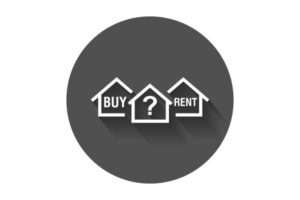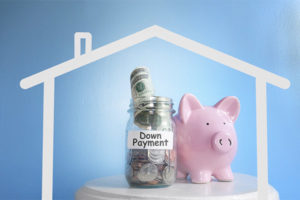Home »
First-time home buyers are often young and financially stressed, struggling with student loan debts, car payments and the costs of raising young children. Even for couples with two incomes, the task of saving for a down payment can seem impossible.
But wait, why not borrow from a 401(k)-retirement account to cover the down payment? It’s tempting for those who have large enough 401(k) accounts and employers that allow borrowing from it. Tempting, yes, but wise? It depends.
Federal tax rules allow you to borrow half the vested funds in your 401(k), up to $50,000, for a down payment, but only if your company plan permits it. The loan to yourself doesn’t require you to pay tax on the withdrawal, nor are there any penalties. But it is a loan, and you’re required to pay it back. Fail to return the money to your account and you’ll owe taxes and a 10% penalty.
Borrowing from a 401(k) beats the alternative, taking a hardship withdrawal from the account.
Borrowing from a 401(k) beats the alternative, taking a hardship withdrawal from the account. Though some company plans allow hardship withdrawals, you’ll have to pay taxes on the money you take out as well as a 10% penalty. Obviously, this is a costly way to access your money.
Both borrowing and early withdrawals have a common disadvantage – they take money that should be growing to cover your eventual retirement and use it for another purpose.
When Does Using a 401(k) for Down Payment Make Sense
The decision to go into your 401(k) for down payment money should only be made after careful analysis. You first need to check with your plan administrator to see if it’s allowed. Not all companies that maintain 401(k) savings plans offer a borrowing option. If it’s permitted, it’s time to explore all alternatives before deciding what makes sense.
Using a 401(k) generally only works in your favor if the money is used to avoid paying for private mortgage insurance (often called PMI) on your home loan. Most conventional home loans require that you obtain – and pay extra for – mortgage insurance if your down payment is less than 20% of a property’s purchase price. Mortgage insurance typically costs 0.5% to 1% of the total value of the loan on an annual basis and must be paid each month until you reach achieve 20% equity in your home.
Before shopping for a home, use online tools or meet with a mortgage broker to determine how large a loan and down payment you can afford. Buying a home that you might struggle to afford could become a financial disaster, so it’s important to know what sort of mortgages are available and how much they will cost you a month based on current interest rates. Mortgage insurance is part of the equation if you can’t cover a standard down payment.
Not all loans require mortgage insurance for down payments of less than 20%.
Not all loans require mortgage insurance for down payments of less than 20%. Federally insured FHA and VA loan permit down payments of as little as 3% to 5% of the purchase price. Some state and local governments also run home-buyer assistance programs that can help with down payments and closing costs.
You should also consider other options. Sometimes a friend or relative might lend you the money for a down payment or even co-sign your loan. Borrowing or co-signing comes with other issues, ones a financial advisor might help you understand.
If you decide to borrow from your 401(k), consider the financial ramifications. Though it is a loan to yourself, it must be paid back within five years or you will face penalties. Tax laws also require that you pay interest on what you borrowed, though you make the interest payments to yourself. Can you afford to make mortgage payments, meet other financial obligations and repay the 401(k) loan? If you’re not sure, talk to an expert who can help you crunch the numbers.
Using a 401(k) works best for those with strong cash flows and small savings outside their 401(k). Using the retirement account money can shave hundreds of dollars a month on a mortgage payment if it eliminates mortgage insurance requirement. Your total monthly outflow might be higher, however, since you will not only make mortgage payments but also monthly 401(k) repayments.
Pros and Cons of Using a 401(k) loan
How do you know if the strategy will work for you? You have to weigh the alternatives:
Pros:
- If the numbers work, a 401(k) down payment loan might have advantages. Compare what a monthly mortgage would cost with and without mortgage insurance, then compute how much you would have to pay back to your 401(k) each month if you were to borrow from it. Remember that mortgage insurance isn’t tax deductible, so anything you spend on it is a loss. A 401(k) loan is money you’re borrowing from yourself, so you don’t lose anything.
- A home is an investment that typically appreciates over time, and the equity you build in it is an asset. When you eventually sell it, you usually can pocket a lot of its appreciated value tax free. If it’s an investment that makes sense to you, arranging the best finance package should be part of the equation.
- Mortgage insurance isn’t cheap. It’s a good idea to avoid paying it, but you need to consider your ability to repay the 401(k) before using it as a solution.
Cons:
- Borrowing from a 401(k) reduces your retirement savings, temporarily and perhaps permanently. Though you will repay what you borrowed within five years, the borrowed funds will not grow tax free during that time. You also might not have enough money to continue making regular 401(k) contributions, a loss that is compounded if you forgo receiving matching contributions that employers traditionally offer.
- Since most employers no longer offer pension plans, tax-advantaged retirement accounts like 401(k)s are the main way most people save for their older years. Reducing those savings might mean less money available when you retire.
- Mortgage lenders evaluate income, expenses and debts when you apply for a loan. Repaying your 401(k) is an expense and will be used in computing how large a mortgage you can afford.
- If you leave your job, either voluntarily or through a layoff, you’ll required to repay what you borrowed within two months. Are you ready for that? Would the loan limit your career options?
- Are you confident you’ll be able to make repayments on time? Failing to stick to the repayment schedule will convert your loan to an early withdrawal if you are younger than 59 ½, and you’ll face a 10% penalty as well as income taxes. Money withdrawn from a 401(k) is taxed as income.
The Bottom Line
Though a 401(k) loan is an option for adding to your down payment, it isn’t the only option. Before you do it, explore all other avenues for raising the money. You could wait to make a purchase, building a home-purchasing fund outside your retirement account, or you could look at mortgages and mortgage-assistance programs that don’t require PMI for down payments of less than 20%.
You should use the best option based on your research or advice from a financial planning counselor. If you have an Independent Retirement Account (IRA) you can withdraw as much as $10,000 for a down payment without paying an early withdrawal penalty, but the money is taxed as income. If you have a Roth IRA, you don’t have to pay taxes principal you withdraw.
If you use the IRA strategy, you might consider rolling over money from your 401(k) into an IRA then withdrawing the $10,000. The money will be taxed but no penalty is charged. To qualify, you need to be a first-time home buyer, meaning you can’t have lived in a home you owned for the past two years.
Finally, you can withdraw funds directly from your 401(k) through a hardship distribution if you qualify under the plan’s rules. Even if you can take the distribution, you’ll be charged a 10% penalty and must pay income tax on the withdrawal. You’ll also be unable to contribute to your account for six months after the distribution.
Need More First-time Homeowner Advice?
Take HomeTrek, our online homebuyer education course and learn how to improve your credit, save a downpayment and qualify for local and federal homebuyer assistance programs.
HUD-Approved Online Homebuyer Education Course
HomeTrek is an easy-to-use HUD-approved online homebuyer education course. Our course will help you learn budgeting, saving, how to improve your credit, understand home much home you can afford.
When Are You Considered a First-Time Home Buyer Again?
Should You Rent-to-Own a Home?
What Is the Minimum Credit Score to Buy a House in 2022
Good Neighbor Next Door Program Helps Teachers, Law Enforcement, Firefighters & EMTs Buy Homes
How Startup Companies Are Helping Home Buyers Win Bidding Wars
How to Buy a House with Little to No Money Down
What Programs are Available to Help African Americans Become Homeowners
Tech Companies Provide Housing Assistance in California and Washington
First-Time Homebuyer Trends for 2022
How Much Down Payment Do I Need for a House?
Sources:
- Kaminksy, J. (2017, April 16) Planning to Borrow from Your 401(K) for That Home Down Payment? It May Not Be as Easy as You Think. Retrieved from: http://www.latimes.com/business/technology/la-fi-mortgage-401k-20170413-story.html
- Miley. M. (2018, June 23) Can I Draw From a 401k for a Home Purchase Without Being Penalized With Taxes? Retrieved from: https://homeguides.sfgate.com/can-draw-401k-home-purchase-being-penalized-taxes-47776.html
- Bergman, A. (2016, June 26) How to Buy Real Estate with Leverage in a 401(k) Plan. Retrieved from: https://www.forbes.com/sites/greatspeculations/2016/01/26/how-to-buy-real-estate-with-leverage-in-a-401k-plan/#5a410f241b38
- Hayes, A. (2016, April 20) Buying a Home with Retirement Savings: Pros and Cons. Retrieved from: https://money.usnews.com/money/blogs/on-retirement/articles/2016-04-20/buying-a-home-with-retirement-savings-pros-and-cons
















